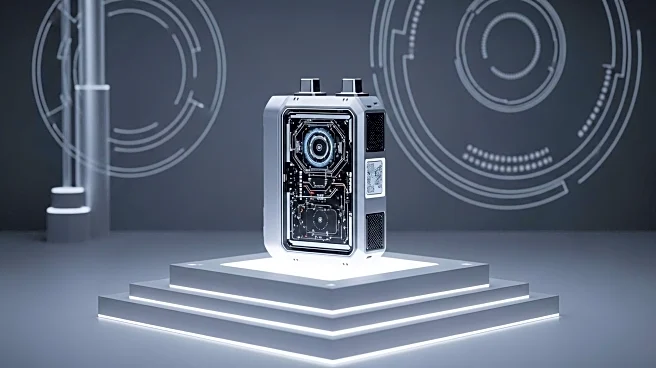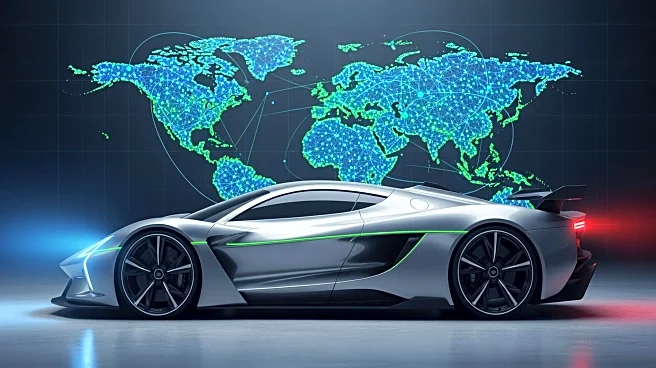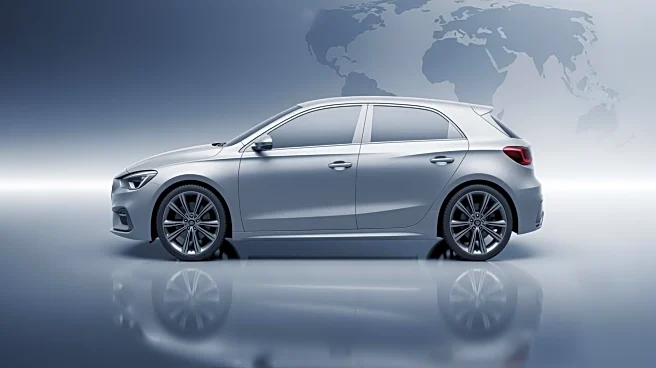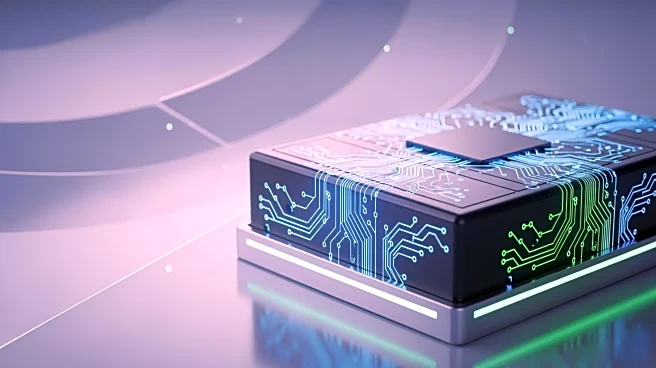What's Happening?
CATL, the world's largest battery manufacturer, has announced plans to begin small-scale production of solid-state battery cells by 2027. This development comes as the company aims to expand its current trial production line. Despite rumors suggesting that these batteries could power electric vehicles for over 1,200 miles on a single charge, CATL has clarified that such claims are exaggerated. The company has achieved a peak energy density of 500 Wh/kg with its solid-state battery technology, which is double that of modern EV batteries with liquid electrolytes. However, CATL emphasizes that commercialization and supply chain development for solid-state batteries are still distant, with mass production potentially starting around 2030.
Why It's Important?
The announcement by CATL is significant for the electric vehicle industry, as solid-state batteries promise higher energy density and improved safety compared to current technologies. However, the high production costs and technical challenges associated with these batteries mean they are not yet viable for mass-market electric cars. Instead, they may be more suitable for applications where energy density is crucial, such as drones and robots. The gradual scaling of production could eventually alter cost calculations, potentially making solid-state batteries more accessible for broader use. This development highlights the ongoing innovation and investment in battery technology, which is crucial for the future of sustainable transportation.
What's Next?
CATL's focus on achieving manufacturing maturity levels 7 or 8 by 2027 suggests that the company is committed to overcoming the technical and economic barriers to solid-state battery production. As the industry progresses, other major players like Toyota and Samsung are also targeting 2027 for their solid-state battery products. The next steps will likely involve further research and development to enhance the technology's viability and reduce costs. Stakeholders in the electric vehicle market will be closely monitoring these advancements, as they could significantly impact the industry's trajectory and the adoption of electric vehicles.
Beyond the Headlines
The pursuit of solid-state battery technology by CATL and other manufacturers reflects broader trends in the energy sector, where innovation is driven by the need for more efficient and sustainable solutions. The ethical and environmental implications of transitioning to advanced battery technologies are profound, as they could reduce reliance on fossil fuels and decrease the carbon footprint of transportation. Additionally, the development of solid-state batteries may influence global supply chains, particularly in the sourcing of materials and the establishment of new manufacturing processes.









